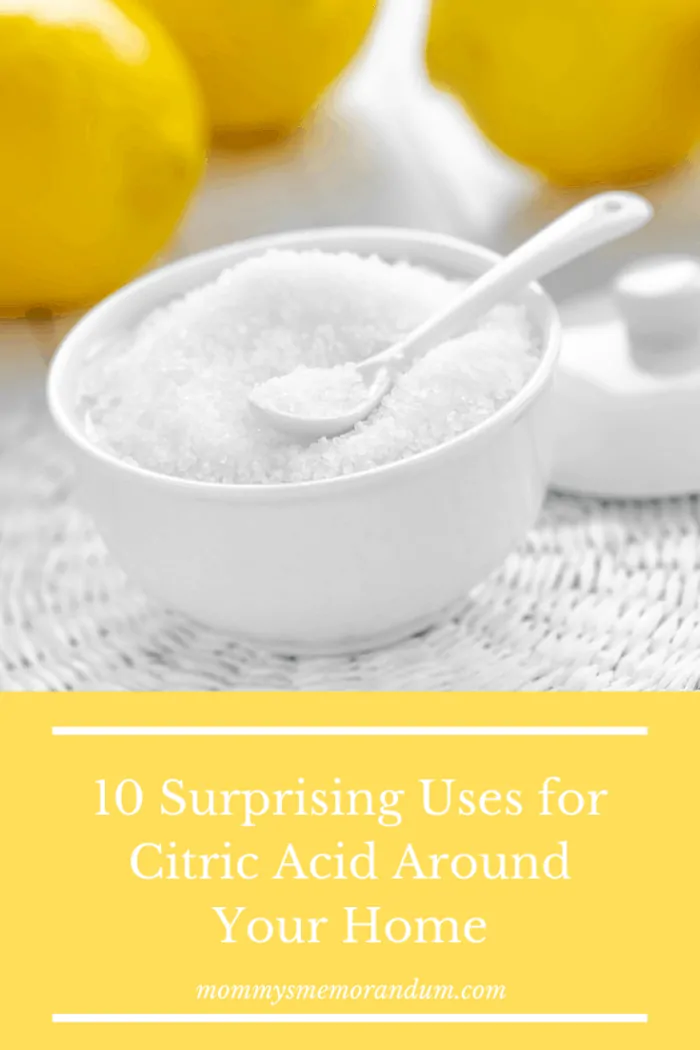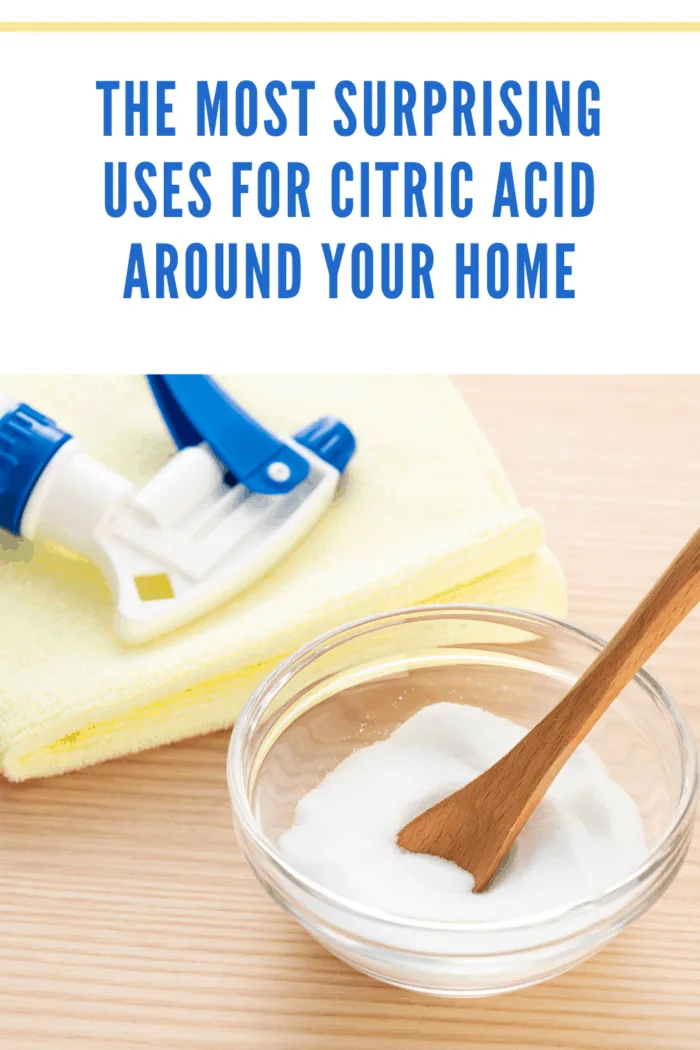Citric Acid Powder Uses: A Complete Guide to Cleaning, Cooking & Self-Care
Move over vinegar—citric acid powder is stealing the spotlight with its zesty charm and powerhouse cleaning abilities. From degunking your dishwasher to perking up your jam game, this humble pantry powder pulls triple duty across your home. Ready to fizz, freshen, and flavor? Let’s go.

10 Genius Household Uses for Citric Acid
Start here for fast, effective ways to clean, shine, and freshen—no toxic chemicals needed. These tips are practical, powerful, and refreshingly simple.
1. Remove Soap Scum Naturally
Mix 1 part citric acid with 2 parts warm water. Spray, wait 15 minutes, scrub and rinse. Great for bathroom walls and kitchen sinks.
2. Boost Laundry Power
Add a tablespoon to your wash. Brightens whites, neutralizes odors, and softens hard water. Pair it with homemade laundry detergent or DIY dryer sheets for a low-tox load.
3. DIY All-Purpose Cleaner
Combine citric acid with warm water in a spray bottle. Safe for most surfaces—just avoid natural stone. For a citrus-powered clean, try it alongside DIY dishwasher cubes.
4. Polish Stainless Steel and Copper
Make a paste with water and citric acid to restore shine to cookware and fixtures. Rinse and dry thoroughly.
5. Eliminate Lime Scale and Rust
Apply citric acid paste or solution to affected areas. Let sit for 30 minutes, scrub, and rinse.
6. Refresh Your Dishwasher
Sprinkle 2 tablespoons into the empty machine and run a hot cycle to banish buildup and odors.
7. Streak-Free Window Cleaner
Mix 1 tbsp citric acid with 1 cup warm water. Spray and wipe with a microfiber cloth or squeegee.
8. Tackle Fabric Stains
Apply citric acid paste to stained fabric. Let sit, then rinse or launder. Patch test first! Follow up with your own homemade fabric softener for extra softness.
9. Sparkling Bathrooms
Use citric acid spray or sprinkle directly to clean grout, toilets, and tile. Scrub and rinse. Pairs perfectly with DIY toilet fizz bombs for extra shine.
10. Deodorize and Dust
Sprinkle on carpets or dusty surfaces, let sit, then vacuum. Neutralizes odors naturally.

Citric Acid in Food and Cooking
From sour candy to cheese curds, citric acid is a quiet hero in your kitchen. Here’s how it keeps flavors sharp and fruits fresh.
Flavor Enhancer Extraordinaire
A dash adds brightness to soups, sauces, and dressings—like lemon juice without the pulp.
The Science of Sour Candy
That iconic mouth-puckering punch in gummies and lollipops? All thanks to citric acid!
Cheese-Making Magic
Used to help form curds for mozzarella, paneer, and ricotta without rennet.
Preserving Fruits & Veggies
Lowers pH to keep canned produce shelf-stable. Prevents browning in fresh-cut fruit too.
Baking With a Boost
In recipes using baking soda, citric acid provides the acid needed to activate fizz and lift.

Personal Care Uses for Citric Acid
Bath bombs, foot soaks, and natural deodorizing—all powered by a pinch of citric acid. It’s skincare meets science.
DIY Bath Bombs
Mix with baking soda and water for fizzy relaxation. Add essential oils or color for flair.
Gentle Exfoliation
Include a tiny amount in DIY masks or scrubs for brighter, smoother skin. Patch test first!
Foot Soak Superstar
One tablespoon in warm water softens calluses and refreshes tired toes.
Natural Deodorizer
Citric acid neutralizes bacteria in homemade deodorant blends. Use sparingly and dilute well.
Scalp & Hair Clarifier
Add a pinch to shampoo to lift residue from hair in hard water areas. Avoid if color-treated.

Safety Tips and How to Store Citric Acid
Gloves On, Sparkle On
Protect hands when using citric acid for cleaning. Rinse thoroughly after use.
Keep Out of Reach
Store citric acid in a labeled airtight container, away from pets and kids.
Watch Your Surfaces
Avoid using on natural stone, untreated wood, or delicate fabrics. Spot test first!
Storage Tips
Keep in a cool, dry place. Prevent clumping with airtight containers.
Compatibility Check
Works well with baking soda, essential oils, and vinegar—but always test for reactions in blends.
FAQs About Citric Acid Uses
Is citric acid safe to use in food?
Yes! Citric acid is food-grade when labeled as such and used widely in candies, canned goods, and flavoring.
Can I clean with citric acid every day?
Definitely. Just avoid using it on acid-sensitive surfaces like granite or marble.
Does citric acid kill bacteria?
It can inhibit bacterial growth but isn’t a medical-grade disinfectant. Great for freshening surfaces naturally.
What’s the difference between citric acid and vinegar?
Citric acid is stronger, odorless, and powdered. Vinegar is liquid and milder. Both are acidic cleaning champs.
Is citric acid okay around pets and kids?
Use diluted and store safely. It’s safe when used properly but should never be ingested or left unattended.
What’s the shelf life of citric acid powder?
Stored dry and airtight, citric acid can last for years without losing effectiveness.
Conclusion: Let Citrus Do the Heavy Lifting
From scrubbing sinks to souring sweets, citric acid powder proves it’s no one-trick pony. It’s the eco-friendly MVP of modern households—cleaning, cooking, preserving, and even pampering with style.
So grab that citrus power, mix, scrub, soak, and savor. You’re not just cleaning—you’re discovering the best citric acid powder uses to transform your home into a fresher, cleaner, and flavor-packed haven.
